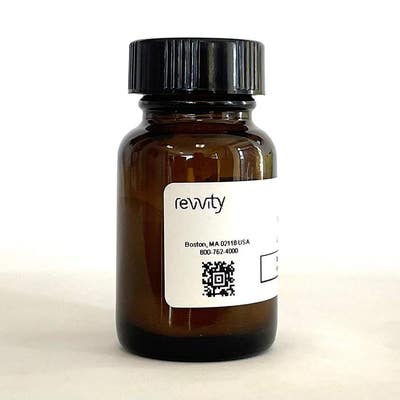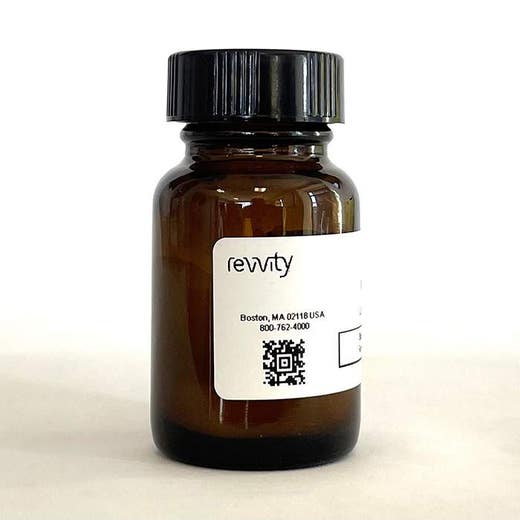
His-Tag Beads PS SPA Beads, 500 mg



| Feature | Specification |
|---|---|
| Surface Treatment |
HIS Nickel chelate (HIS-tag) |



Loading...
Product information
Overview
His-Tag polystyrene (PS) SPA beads for capturing His-tagged proteins and peptides. 500 mg quantity.
SPA Imaging beads are microspheres containing scintillant which emit light in the red region of the visible spectrum. As a result, these beads are ideally suited to use with a CCD imager.
Two types of core SPA Imaging bead are available - yttrium oxide (YOx) and Polystyrene (PS). A number of biological coatings also exist for each core bead type to enable receptor binding, enzyme, molecular interaction and radioimmunoassays to be investigated.
Scintillation proximity assay (SPA) is a homogeneous and versatile technology for the rapid and sensitive assay of a wide range of biological processes, including applications using enzyme and receptor targets, radioimmunoassays, and molecular interactions. When 3H, 14C, 33P, and 125I radioisotopes decay, they release β-particles (or Auger electrons, in the case of 125I). The distance these particles travel through an aqueous solution is dependent on the energy of the particle. If a radioactive molecule is held in close enough proximity to a SPA Scintillation Bead or a SPA Imaging Bead, the decay particles stimulate the scintillant within the bead to emit light, which is then detected in a PMT-based scintillation counter or on a CCD-based imager, respectively. However, if the radioactive molecule does not associate with the SPA bead, the decay particles will not have sufficient energy to reach the bead and no light will be emitted. This discrimination of binding by proximity means that no physical separation of bound and free radiochemical is required.
Specifications
| Application |
Drug Discovery & Development
|
|---|---|
| Automation Compatible |
Yes
|
| Bead Type or Material |
Polystyrene (PS)
|
| Brand |
SPA Imaging Beads
|
| Detection Modality |
Radiometric
|
| Format |
Microplates
Tubes
|
| Shipping Conditions |
Shipped Ambient
|
| Surface Treatment |
HIS
Nickel chelate (HIS-tag)
|
| Technology |
Scintillation Proximity Assay
|
| Unit Size |
500 mg
|
Resources
Are you looking for resources, click on the resource type to explore further.
Scintillation proximity assay has been successfully applied to receptor binding assays


How can we help you?
We are here to answer your questions.






























